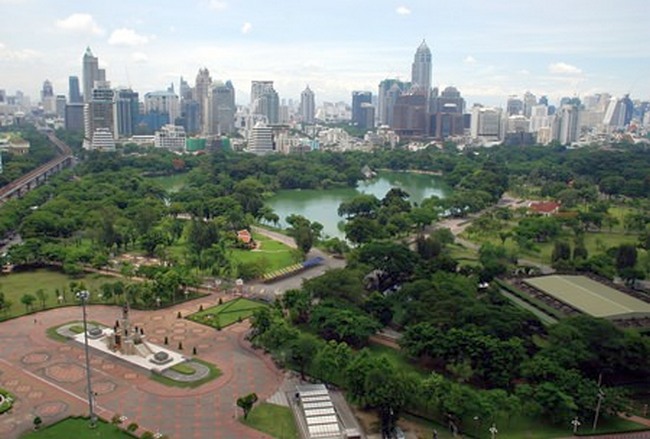
The Thai property market blinked this week after the newly-established government committee, Centre for Economic Situation Administration (CESA), announced that purchasing a condominium unit in your own name could secure that much-vaunted prize – permanent residency. CESA was set up by prime minister Prayut Chan-ocha last month to steer the country economically through the coronavirus pandemic. It’s serious stuff.
Permanent residents are a privileged group of foreigners who have no final date in their passport by which they must leave the country or apply for an extension of stay. They are not be confused with holders of long-term visas such as Elite cards , work permits or one year renewable permits for retirees, students and those with Thai wives or dependants. Permanent residency is discretionary, subject to numerical limits and is usually reserved for those with a good track-record in Thailand of working diligently and/or having contributed significantly to the welfare of Thai people as a whole. No more hassle with the immigration bureau is seen as a principal plus and no more 90 days reporting. Hurrah!

However, it would be wise to pause a moment before you rush off to buy a condo or even present the paperwork of a previous purchase and expect to receive your red police book certifying permanent residency by return of post. It doesn’t work like that. Firstly, the CESA announcement is “in principle” not a done-deal. Moreover, the same promise has been made before but wasn’t delivered. 30 years ago, when foreign ownership of condominium units was first allowed, the suggestion of “no further need of visas” was raised and then forgotten. Instead, the one year retirement extension of stay was soon introduced as a much-weaker alternative.
Another later move in 2014 was the introduction of a revamped investment visa which offered a renewable one year permit, subject to buying one or more condominium units totalling at least 10 million baht in new developments. Alternatives included buying Thai bonds to that amount or depositing the same sum, or more, in a fixed deposit account in a Thai bank. There was also a requirement at the time to obtain a letter from Thailand’s Board of Investment and to ensure you bought your unit or units directly from the developer. Not a third party.
The CESA, in its September 2020 announcement, also specified that the new owner must not mortgage, sell or transfer ownership of the condominium for at least five years. Obviously, this pushes your application for permanent residency well into the 2020s. So any foreigner currently stranded outside Thailand and desperate to return – and there are many as Thai embassies round the world would verify if they were not sworn to silence – should delay becoming a significant investor of Thai property before the detail is known and certified. That’s where the devil is. Or might be.
In a related announcement, the CESA announced that they wanted to boost investment further by, again “in principle”, amending the guidelines for the SMART visa introduced in 2018. This is a 4-year permission designed to attract highly skilled manpower and investors to accelerate the development of the country’s targeted, new-technology industries. It is offered to foreign experts, executives, entrepreneurs and investors who will promote the 13 S-Curve industries. The visa is not widely known, but is used in the export-oriented Eastern Economic Corridor in three provinces including Chonburi.
The SMART visa is the only one available for use in Thailand that does not separately require a work permit. Although complex to obtain and requiring the involvement of several government departments, including the Board of Investment and the immigration bureau, SMART offers many bonuses including the right of the holder’s immediate family to work openly without separate documentation. Nor is there a 90-day reporting requirement. Hurrah again!
The CESA is now suggesting that SMART should be available for economic areas beyond new technology, including independent experts or even nomads who don’t have employment contracts here. One suggestion is investment in the hospitality and hotels industry. The committee is also calling for the relaxation of the SMART entry rules which currently require degree level qualifications to submit an application. Many rich people aren’t academics.
Although the CESA recommendations in condominium purchasing and new technology visas aren’t of much interest to foreigners whose preoccupation in Pattaya is the closing time of pubs and finding a hearty meal for under 200 baht, they do underscore how the eastern seaboard is changing fast. You ain’t seen nothing yet.




